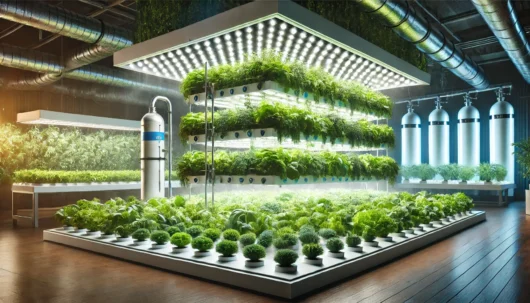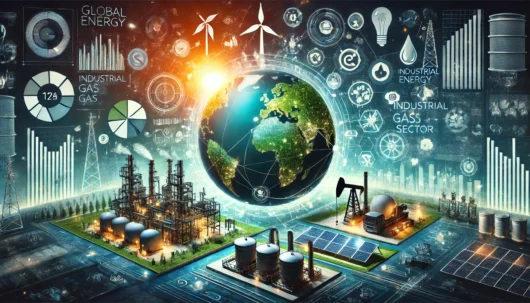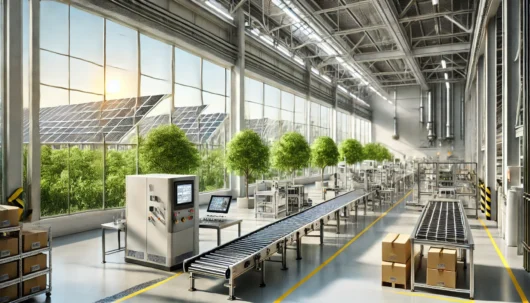What Is Food-Grade CO2?
Food-grade CO2 for beverage production is a purified form of carbon dioxide that meets strict safety and quality standards for use in consumable products. It is free from contaminants such as hydrocarbons, sulphur, and other impurities, ensuring that it is safe for carbonated beverages, beer, and sparkling water.
This gas plays a crucial role in the food and beverage industry, particularly for:
✅ Carbonation – Giving soft drinks and beer their signature fizz.
✅ Preservation – Extending the shelf life of perishable beverages.
✅ pH Control – Maintaining acidity levels in some drinks.
Unlike industrial CO2, which may contain residual oils or toxins, food-grade CO2 adheres to European Food Safety Authority (EFSA) and U.S. Food and Drug Administration (FDA) standards for food safety.
How Is Food-Grade CO2 Produced?
Food-grade CO2 is typically sourced from:
- Natural fermentation (e.g., beer and wine production).
- Chemical processes like ammonia production.
- CO2 capture and purification from industrial emissions, making it an environmentally friendly option.
Each method ensures high-purity CO2 that is safe for consumption.
Why Food-Grade CO2 Matters in Beverage Production
1. Essential for Carbonation
Carbonation provides drinks with effervescence, texture, and improved mouthfeel. Beverages like sodas, energy drinks, and mineral water rely on food-grade CO2 for beverage production to maintain consistent quality.
Even in beer production, CO2 plays a key role in natural fermentation, giving the drink its characteristic bubbles. Without high-purity CO2, the taste and appearance of these beverages could be compromised.
2. Preserves Freshness and Flavor
CO2 acts as a natural preservative, preventing the growth of harmful bacteria and yeast. In the beer and soft drink industry, proper CO2 levels enhance flavor stability, ensuring that products taste fresh even after weeks on the shelf.
Additionally, CO2 helps prevent oxidation, which can make beverages taste stale. This is especially important for craft breweries that need to maintain quality over time.
3. Regulated for Safety and Quality
The use of food-grade CO2 for beverage production is highly regulated to ensure consumer safety. Authorities like the:
- European Food Safety Authority (EFSA) – Learn more here
- U.S. Food and Drug Administration (FDA) – Official guidelines
…require CO2 purity of 99.9% or higher for beverage applications. This ensures that only non-toxic and food-safe CO2 is used in soft drinks and alcoholic beverages.
How to Choose the Right CO2 Supplier
When purchasing food-grade CO2 for beverage production, consider the following:
✅ Certifications and Compliance
Always select a supplier with proper certification such as the FDA’s HACCP certification, ensuring strict quality control.
✅ Reliable Supply Chain
CO2 shortages can impact beverage production. Partnering with a trusted supplier like Ramdon ensures you get consistent, high-quality CO2.
✅ Sustainable Sourcing
Many companies now opt for eco-friendly CO2 sourcing. Capturing CO2 from fermentation or industrial processes reduces carbon footprints while maintaining food-grade purity.
Common Questions About Food-Grade CO2
1. Can I use industrial CO2 for beverages?
No. Industrial CO2 is not safe for consumption as it may contain toxic impurities. Always use food-grade CO2 to meet food safety regulations.
2. How do I know if CO2 is food-grade?
Reputable suppliers will provide a certificate of analysis (COA) showing that the CO2 meets purity requirements. If you’re unsure, check the gas grade and certifications before purchasing.
3. Is food-grade CO2 different from beverage-grade CO2?
Both are essentially the same, but “beverage-grade CO2” is often a marketing term used by suppliers. The key factor is purity level, which should be 99.9% or higher for any consumable CO2.
Conclusion
Using food-grade CO2 for beverage production ensures that drinks maintain consistent carbonation, extended shelf life, and compliance with safety regulations. Whether you produce soda, beer, or sparkling water, high-quality CO2 is a non-negotiable ingredient.
Want to talk shop?
✅ Reach out to Ramdon for safe and reliable options.


